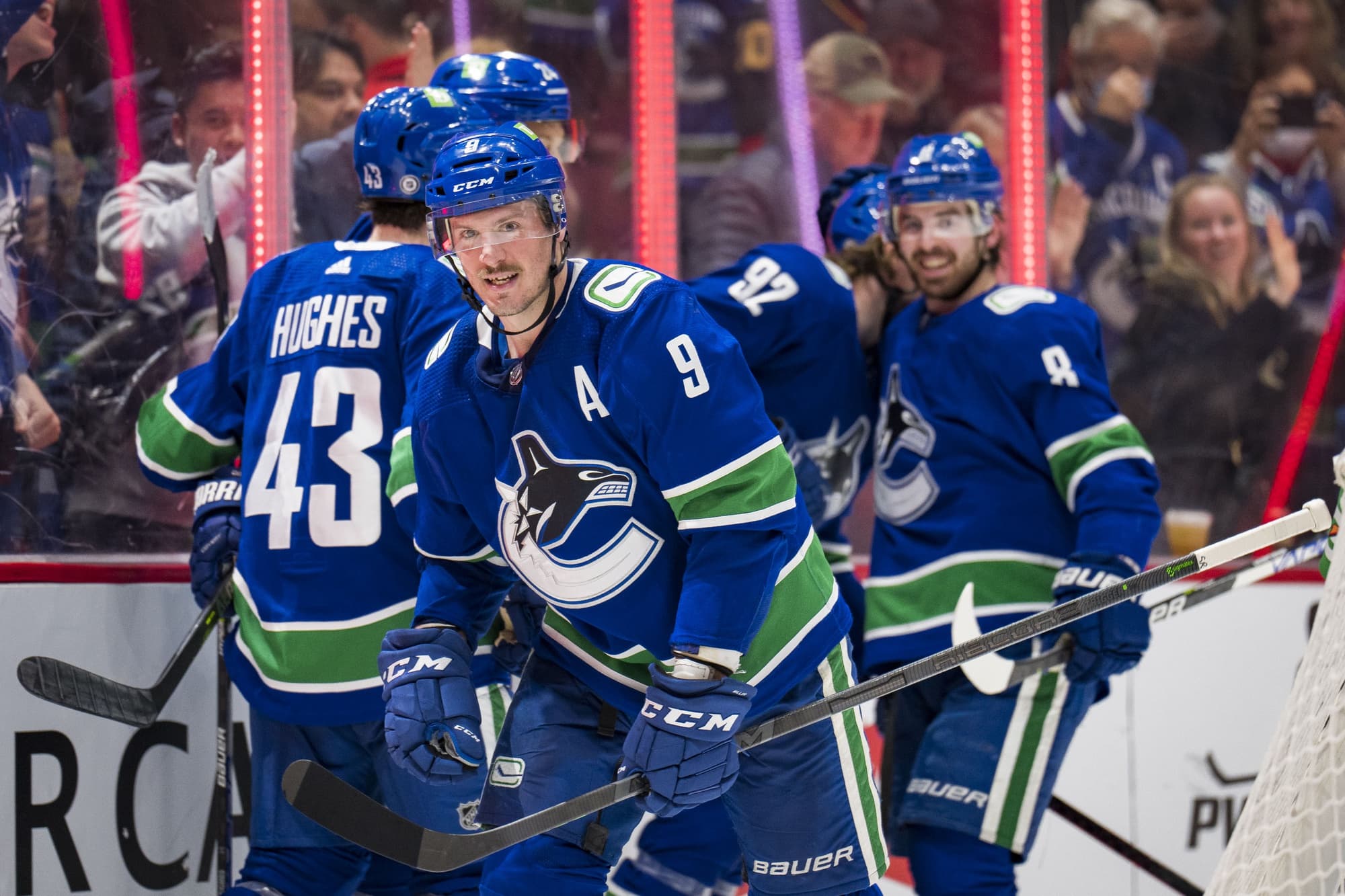Jim Rutherford says “it may not make sense for both sides” for the Canucks to extend J.T. Miller, and he’s right
Photo credit: © Bob Frid-USA TODAY Sports
Jun 25, 2022, 14:30 EDT
Keep scrolling for the next article
Breaking News
- 5 Canucks whose trade protection changes as of July 1, 2025
- Dave Hall breaks down Abby Canucks’ Western Conference Final win: Canucks Conversation
- Drew O’Connor could be the Canucks best middle-six forward next year: 2024-25 Year in Review
- 4 reasons the Canucks could be sitting on an already-complete trade
- The Farmies: Arshdeep Bains punches Abbotsford through to Calder Cup Finals with two goals in 4-2 win against Texas
